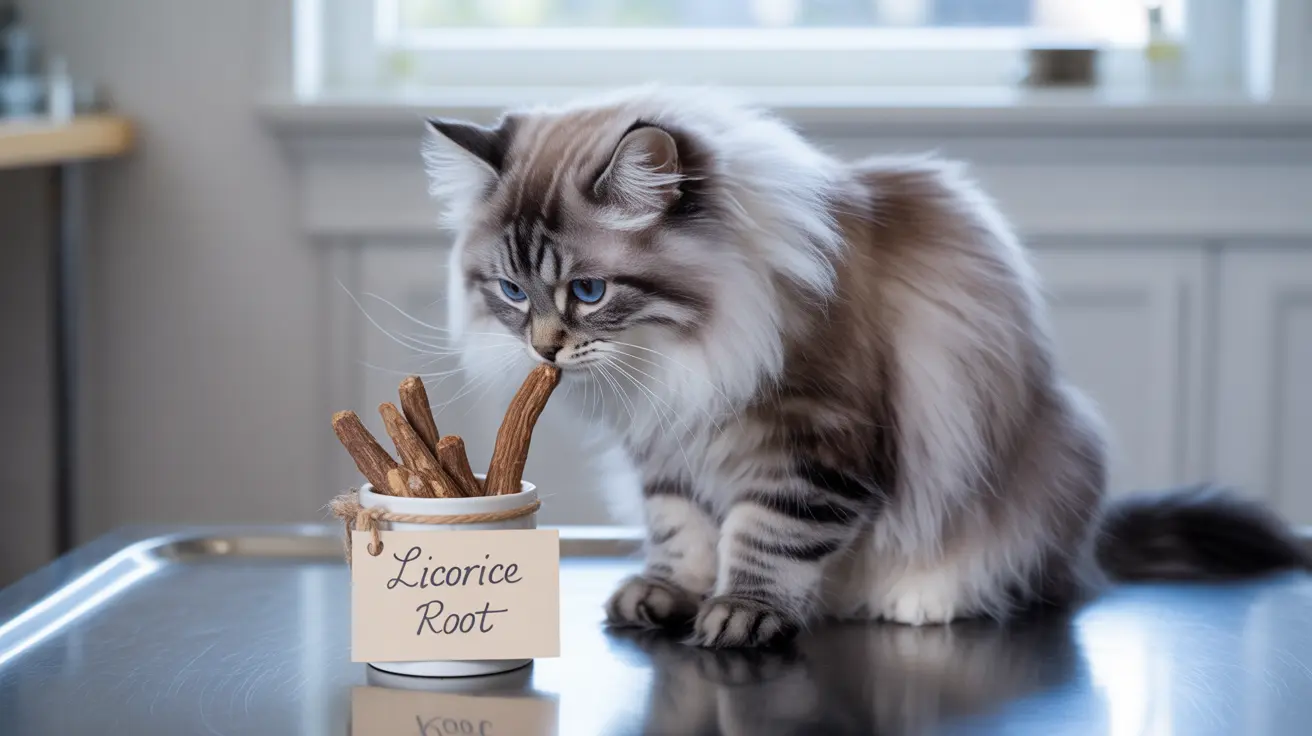Introduction
Many pet owners are exploring natural remedies for their feline companions, and licorice root for cats has gained attention for its potential therapeutic properties. This ancient herb, known for its anti-inflammatory and soothing effects, requires careful consideration before being introduced to your cat's wellness routine.
While licorice root may offer certain benefits for cats when properly administered, it's crucial to understand both its advantages and potential risks. This comprehensive guide will explore everything you need to know about using licorice root safely for your feline friend.
Understanding Licorice Root and Its Effects on Cats
Licorice root contains glycyrrhizin, a compound that can have both beneficial and potentially harmful effects on cats. This natural substance has anti-inflammatory properties but can also influence your cat's blood pressure and potassium levels when consumed in large quantities.
The herb's natural cortisone-like properties make it particularly interesting for treating certain feline conditions. However, cats process herbs differently than humans, making proper dosing and administration crucial.
Potential Benefits of Licorice Root
Anti-inflammatory Properties
When properly administered, licorice root may help cats suffering from inflammatory conditions such as arthritis or skin allergies. Its natural cortisone-like effects can provide relief without some of the side effects associated with traditional steroid medications.
Digestive Support
Some veterinary herbalists recommend licorice root for cats experiencing mild digestive issues. It may help soothe gastrointestinal inflammation and support regular digestive function when used appropriately.
Safety Considerations and Risks
Proper Dosing
The safe use of licorice root depends entirely on proper dosing, which should always be determined by a veterinarian. Even small overdoses can lead to serious health complications in cats.
Potential Side Effects
- Digestive upset
- Changes in blood pressure
- Electrolyte imbalances
- Increased thirst and urination
- Lethargy or weakness
When to Avoid Licorice Root
Certain cats should not receive licorice root supplements, including:
- Cats with heart conditions
- Diabetic cats
- Pregnant or nursing cats
- Cats with kidney or liver disease
- Cats taking certain medications
Safe Administration Guidelines
If your veterinarian approves licorice root for your cat, follow these important guidelines:
- Use only pet-specific formulations
- Avoid human supplements or licorice candy
- Monitor your cat closely for adverse reactions
- Follow dosing instructions precisely
- Discontinue use if any negative symptoms appear
Frequently Asked Questions
Is licorice root safe for cats to consume, and what is the recommended dosage?
Licorice root can be safe for cats when used under veterinary supervision and in appropriate doses. The exact dosage must be determined by a veterinarian based on your cat's specific condition, weight, and overall health status.
What are the signs of licorice root toxicity in cats and what should I do if my cat shows symptoms?
Signs of toxicity include vomiting, diarrhea, lethargy, increased thirst, and unusual behavior. If you notice these symptoms, discontinue use immediately and contact your veterinarian.
Can licorice root help with my cat's allergies or arthritis, and how should it be used safely?
Licorice root may help manage these conditions due to its anti-inflammatory properties, but should only be used under veterinary guidance. Your vet can determine if it's appropriate for your cat's specific situation.
Are licorice candies or licorice-flavored treats safe for cats?
No, commercial licorice candies and treats are not safe for cats. They often contain artificial sweeteners, sugar, and other harmful ingredients that can be toxic to cats.
Why is it important to consult a veterinarian before giving licorice root or herbal supplements to my cat?
Veterinary consultation is crucial because cats are sensitive to herbs and supplements. Your vet can assess potential interactions with medications, evaluate your cat's health status, and provide proper dosing guidelines.
Conclusion
While licorice root may offer potential benefits for cats, its use requires careful consideration and professional guidance. Never administer this herb without first consulting your veterinarian, and always monitor your cat closely when introducing any new supplement to their routine.






